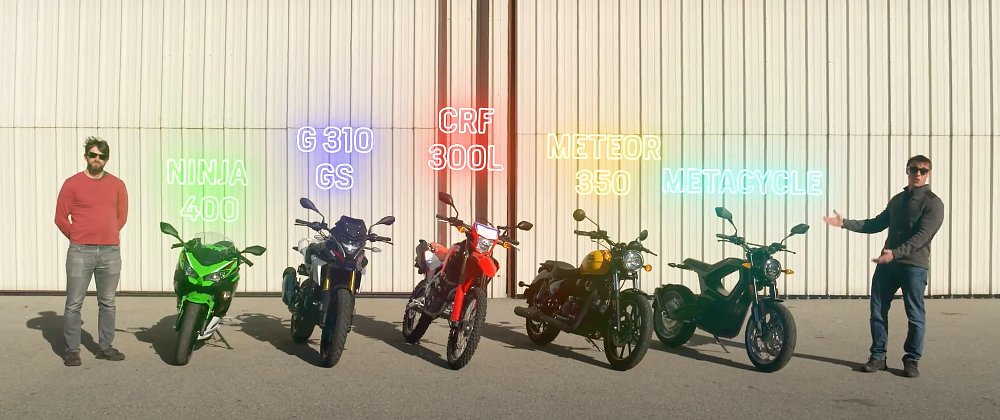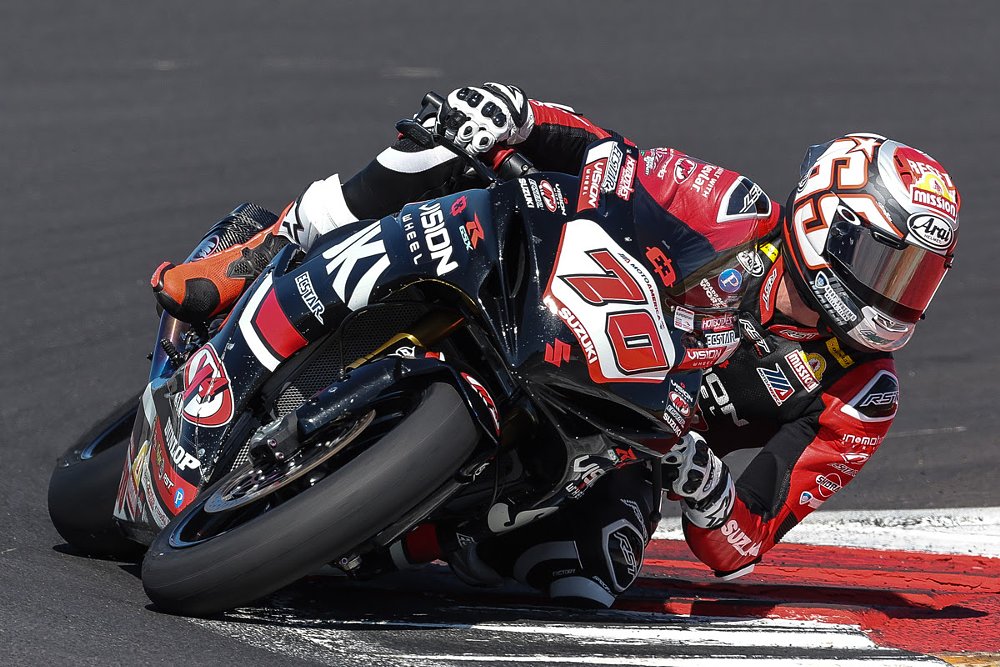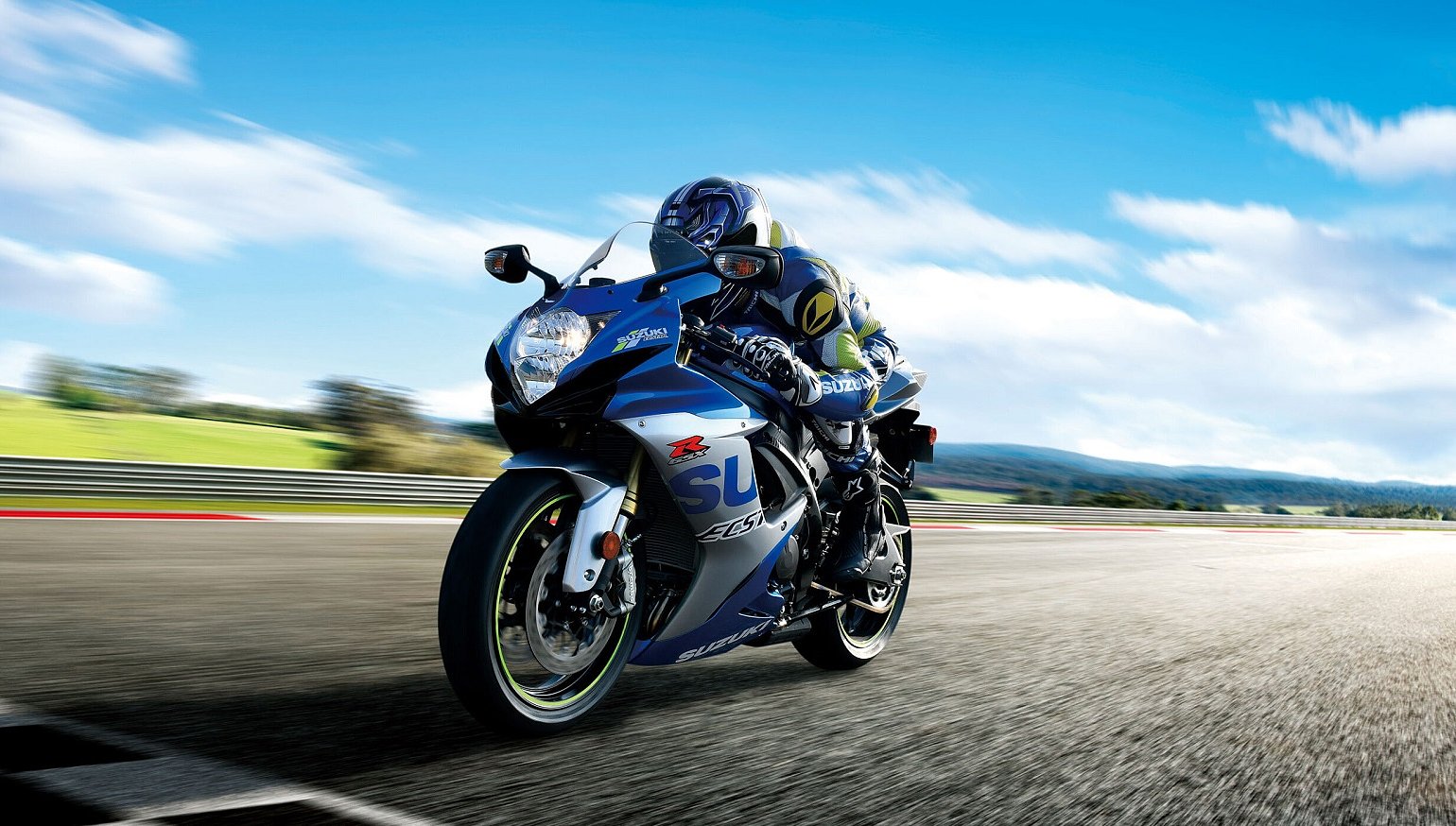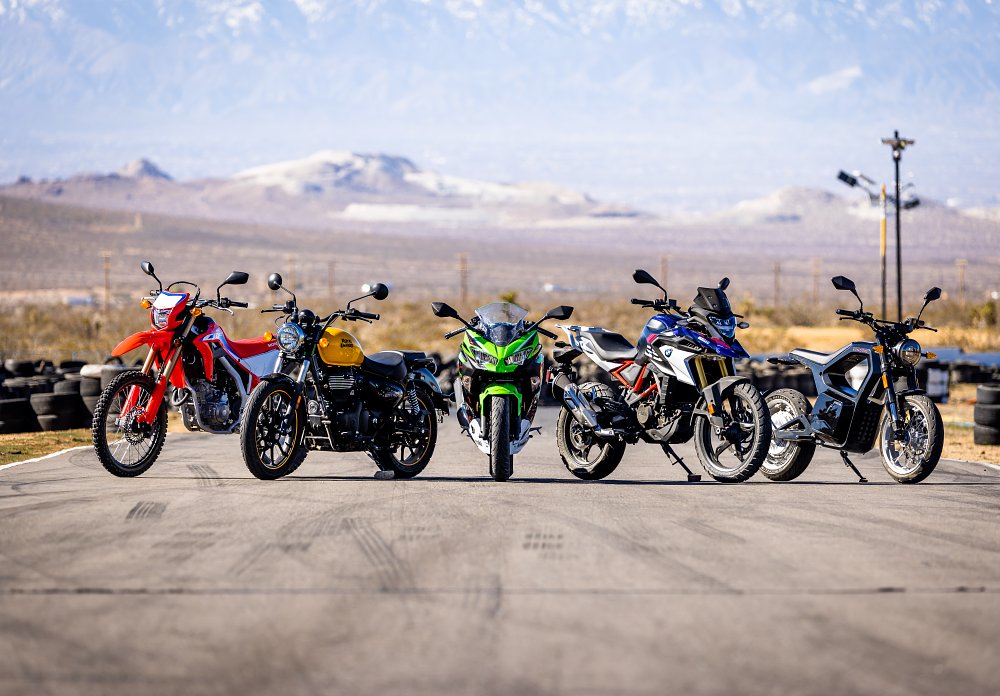Today, when anyone can launch a YouTube channel or slap together a web site and start dispensing motorcycle tips, there’s more advice available than ever, but the quality varies radically. As I scan the web trying to keep up with what the motorcycle world is talking about, I regularly come across questionable or even downright dangerous advice. Recently, I think I found a candidate for the worst piece of motorcycle advice on the internet: A new Suzuki GSX-R750 is the perfect first bike.
Yes, that phrase really was published by a certain website that has very high standards for stuffing its articles with the right keywords to maximize its results in search engine rankings but has very low standards in terms of providing readers with in-depth information, useful context, and solid counsel.
I happen to like the GSX-R750 and I have soft spot for 750s in general, which were once ubiquitous and are now nearly extinct. But suggesting that a Gixxer 750 is "perfect" for a first bike is editorial malpractice.
A very brief history of bad advice
Unlike bad advice about baking bread or pruning your rose bush, bad advice about motorcycling can have life-changing consequences. It's not like the internet and social media invented the problem. When I started riding, there was no MSF course for me to take, no books or videos on riding techniques, and certainly no internet to search. If you were lucky, you had a parent or friend who gave you good advice as you learned to ride. If you were unlucky, chance assigned you a mentor who taught you never to use the front brake. In many cases, you were like me, and really had no one to guide you and you figured it out as you went along, assuming you survived. When I was in college, I discovered back issues of the two top motorcycle magazines buried deep in the library stacks. Evenings in the periodicals section was the closest I came to formal education in motorcycling. That was where I learned what countersteering was and why I shouldn't listen to the geezers who told me never to use the front brake.
Today, the new or aspiring rider can instantly access vastly more information. But just like when I started riding, there's good information and misinformation, wise counsel and bad advice. Imagine 18-year-old me in today's world: I want to buy a motorcycle, I don't have anyone around me who rides and can guide me, and I like the looks of the Gixxer so I Google the question, "Is the GSX-R750 a good first bike?" High up in the results is a story telling me it's a "perfect" first bike.

Bad advice: A quick case study
What rationale does the article use for saying the Suzuki GSX-R750 is the perfect first motorcycle? "If you are a natural-born adrenaline junkie that appreciates both high performance and top-rated handling," the Suzuki has it. And since it costs under $13,000, it's not the most expensive sport bike out there. Plus, Suzuki has been making it for nearly 40 years, so it must be good. Sure, it has a lot of power, but most new riders won't go beyond first and second gear, anyway. (Yes, it really said that.)
When I told Spurgeon about this article, he immediately wondered if it was AI-generated. I had wondered the same thing. Among the sections that made me suspicious were the statements that "its frame connects the steering head with the swingarm pivot" and the "engine is also positioned below the bike's frame to prevent it from being top-heavy." Couldn't that be said of almost every motorcycle on the market? I could see AI scanning Suzuki's description and specifications for the GSX-R750 and highlighting those as features, but I suppose a not-very-knowledgeable and not-very-careful human might also do that. Especially one rapidly churning out large volumes of clickbait copy.
Interestingly, the same website also ran another article about the GSX-R750 a year earlier that noted its power output and said, "In case it still isn't obvious, this ain't for entry-level riders, not even close." But that probably won't be seen by the unknowing who Googled "Is the GSX-R750 a good first bike?" Who might that be? The article speculates it could be "a prospective buyer doing research, or a concerned parent that wants to make sure that your kid's first motorcycle isn't going to put your baby angel in danger."

To be clear: Why a new GSX-R750 is a terrible first bike
If you really are that person just starting to learn about motorcycles and you don't know why a GSX-R750 wouldn't be a good starter bike, first of all, let me give you a warm welcome. Then let me invite you to read our tips on how to choose a first motorcycle, Lemmy's three rules on what to buy, our guide to how to get your motorcycle license, and our overview of rider education options. And if you're still at the very beginning stage, wondering how a motorcycle even works, see our video and story on the very basics of how to ride a motorcycle. Our YouTube channel even has an entire playlist of videos aimed at helping new riders get started.
But back to the Gixxer 750. I think I could write a more persuasive argument about why it's one of the worst choices.
I always advise new riders to buy something used, small, and cheap, so they won't be as distraught when they drop it and scratch it. If they tell me they'll outgrow it, I respond yes, that's exactly what you should do. You should move up the ladder, trying new motorcycles as your skills develop. If they tell me they only want their dream bike, I tell them they won't know what their dream bike really is until they've been riding a while and find out which parts they love and which parts they can do without. And if you become a hopeless case like most Common Tread readers, you won't want to own one and only one dream bike. You'll want to try many different motorcycles and the wide variety of experiences that come with them.
The specifics of the GSX-R750 that make it unsuitable are pretty obvious: The ergonomics are perfect for an expert racer on a track, but uncomfortable and even awkward at slow speeds and in traffic. The power is excessive for an inexperienced rider. The price is relatively high and repairs of expensive bodywork from even the mildest tipover are expensive. Insurance is costly or even exorbitant or unobtainable for young riders. But even if you're going to ignore all that and buy a new, expensive sport bike as your first ride, cost be damned, there's one particular thing that makes the GSX-R750 almost your worst possible choice: It's almost the only modern sport bike that does not offer anti-lock brakes, something every new rider, especially one on a high-performance bike with powerful brakes, could use.
The "perfect" first bike? More like the exact opposite. Or a good way for your "baby angel" to join the real angels in the hereafter, quite prematurely.
The real takeaway: More is asked of the least prepared
My point is not to pick on the GSX-R750, which is a motorcycle I really like and one I'd seriously consider if I were in the market for a sport bike. And this is not just about one possibly AI-generated story on a web site devoted to luring traffic with low-quality clickbait. (I'm not linking to the site because I don't want to enhance its search-engine rankings.) No, my purpose in writing this is two-fold.
First, if you're new to motorcycles, you have to put more effort than ever into your critical thinking as you search for guidance on the web. You absolutely must consider the source and evaluate credentials, and unfortunately you have to do that at the beginning stage of your motorcycling career, when you're least equipped to do it. But if you consult multiple sources and pay attention to who's doling out the advice, you'll gradually be able to identify the knowledgeable voices who are (generally) agreeing with each other, in contrast to the glib, sometimes contradictory voices just trying to get your clicks with empty entertainment or catchy distraction.
For the rest of us who are further along in our journey into motorcycle knowledge, it's just another reminder that we always have to have our critical thinking faculties in gear. Doesn't matter whether we're reading about motorcycle riding techniques or who to vote for or where to invest your money. And one final thought: Never pass up a chance to share some of your hard-earned knowledge with those who are just starting their journey. If you're not confident in giving advice yourself, steer them toward the reliable sources of information. Today's new and aspiring riders need all the good guidance they can get.












